Universal credit claimants fear spending Christmas without money
- Published
Erin Barrett said her experience of universal credit had left her at times unable to afford food
People who claim universal credit say they fear being left without money over Christmas because of delays to their benefit payments.
Erin Barrett, 26, said the system had left her choosing between buying food or Christmas presents for her son.
The debt charity Christians Against Poverty has called on the government to reform the system.
The government said no claimants should be without money over Christmas because advance payments were available.
Universal credit is the government's flagship welfare policy, with over 1.4m people in Great Britain now being paid benefits through the digital platform.
Introduced in 2016 with the aim of simplifying the benefits system and getting more people back to work, the rollout of universal credit for new benefit claimants was completed this week.

'I don't want my son to think he's been naughty'
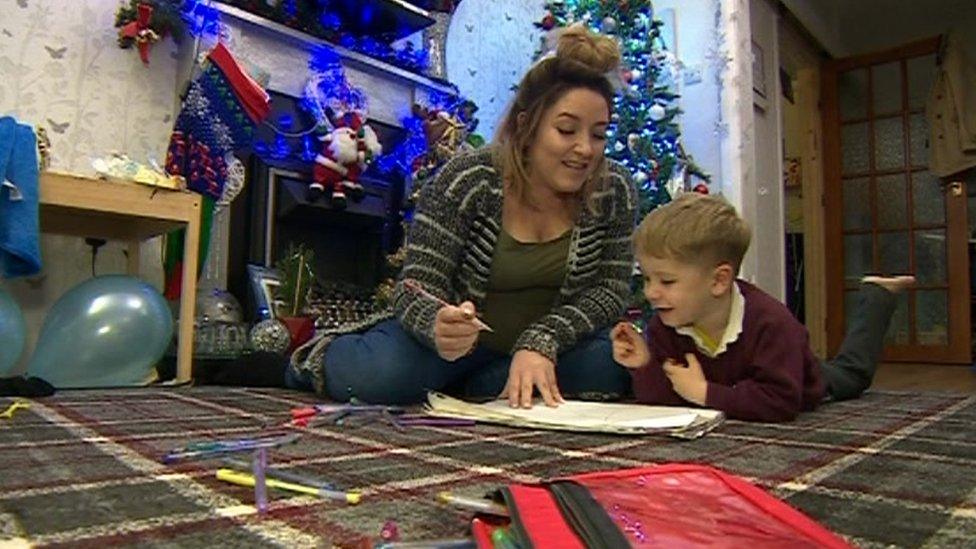
Erin Barrett said delays with her benefit payments meant she felt unable to buy her son Christmas presents
Ms Barrett, a single mother, has been on universal credit for over a year.
"Buying Christmas presents is going to be difficult because everyone keeps saying my priority should be to feed my four-year-old son," she said.
"But I don't want my son to wake up on Christmas day and think he's been naughty because Santa hasn't brought him any presents."
Ms Barrett works part-time which she said means her "hours can vary and the system just can't cope".
"I typically have £26 left at the end of each month so I use food banks a lot, and if I can't heat my home I send my son to sleep at someone else's house."
Ms Barrett and three other single mums have recently launched a legal claim against the government, claiming universal credit discriminates against single parents.

Halifax in West Yorkshire was one of the first places in the country where universal credit was introduced.
Chris Wright, a support worker for charity Christians Together which provides a foodbank and free cafe to those in need in the town, said Christmas was "often the tipping point for those on benefits".
"Universal credit has turned out to be a good idea in theory, but in practice we've had big problems with payments being delayed and people being sanctioned."
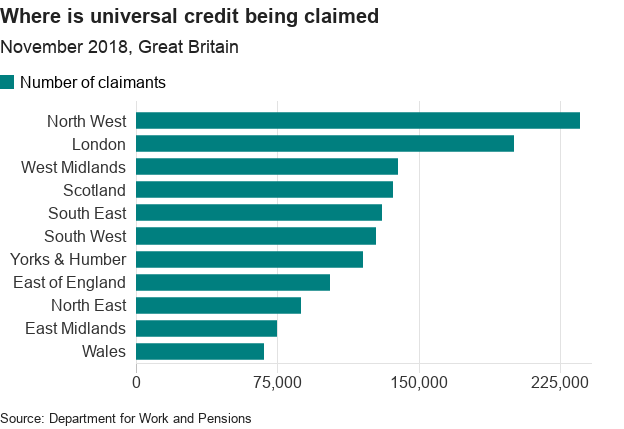
As part of universal credit, claimants looking for work have to attend regular meetings at the job centre and demonstrate they are applying for a certain number of jobs each week.
If they fail to meet these requirements, the amount they are paid in benefits can be reduced or stopped temporarily.
In August, there were half a million people across Great Britain searching for work whilst on universal credit. About 18,000 of these claimants had some form of sanction on their benefit.

How does universal credit work?
Universal credit combines six "legacy benefits" into one monthly means tested payment. The legacy benefits are working tax credits, child tax credit, job seekers allowance, income support, employment support allowance and housing benefit
A single universal credit payment is then paid directly into the claimant's bank account
Since 2016 new benefit claimants have been enrolled onto the system. For those people claiming benefits from before 2016, they will be moved onto the new system from 2019 onwards
Its estimated eventually seven million households will be receiving benefit payments worth £60bn a year through universal credit
Source: House of Commons Library

John Russell, 61, from Halifax, said he was sanctioned for two months after missing an appointment at the job centre.
"The sanction halved my benefit payments, I was being asked to live on £30 pounds a week at one stage," he added.
"Christmas just doesn't exist when you're on universal credit, I've got no decorations up and I just feel worthless on universal credit, properly worthless."
A spokesman for the Department for Work and Pensions said sanctions "are only used as a last resort in a very small percentage of cases, and the proportion of claimants being sanctioned has halved in the last year".
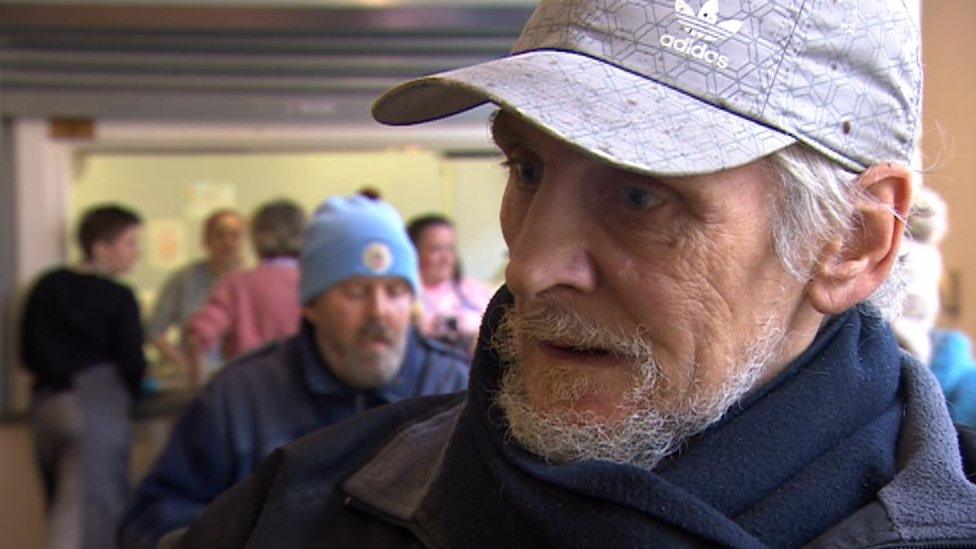
John Russell said Christmas "just doesn't exist when you're on universal credit"
Christians Against Poverty has called on the government to reform the payment system, warning that more universal credit claimants will be pushed into debt.
"Every year Christmas is the moment where people find that they just can't cope with their debts," said Rachel Gregory, the charity's social policy and relationship manager.
"But in the last six months we've seen a 30% increase in the number of people saying to us that universal credit is the main reason why they're in debt."
Commenting on the completion of the rollout of the system, Secretary of State for Work and Pensions Amber Rudd said universal credit was "working for the vast majority of people and I will continue to monitor closely and make improvements where needed".
"Universal Credit is a force for good, and everyone that visits a jobcentre from now on will be able to access a better, modern benefit with personalised support."
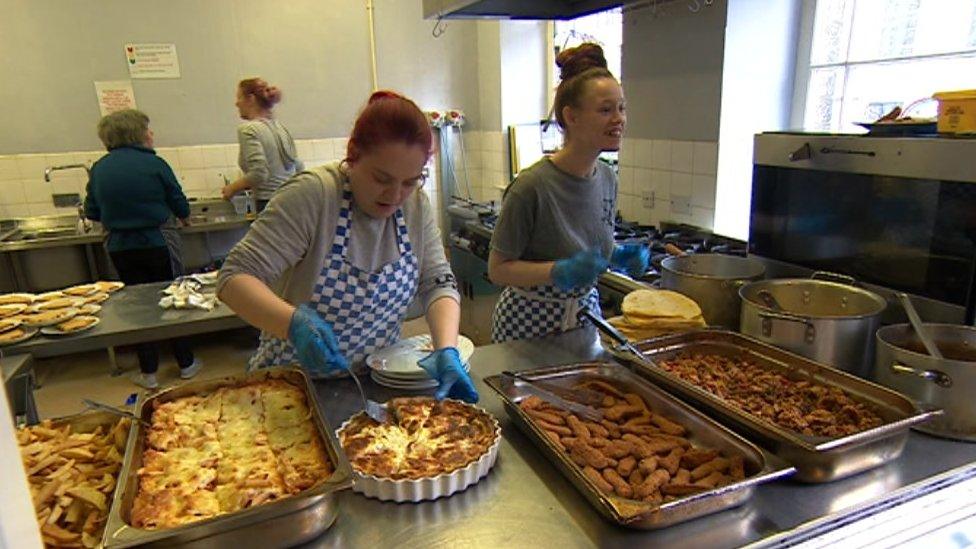
The free cafe at the Gathering Place in Halifax hands out hundreds of free meals every week
- Published27 November 2018
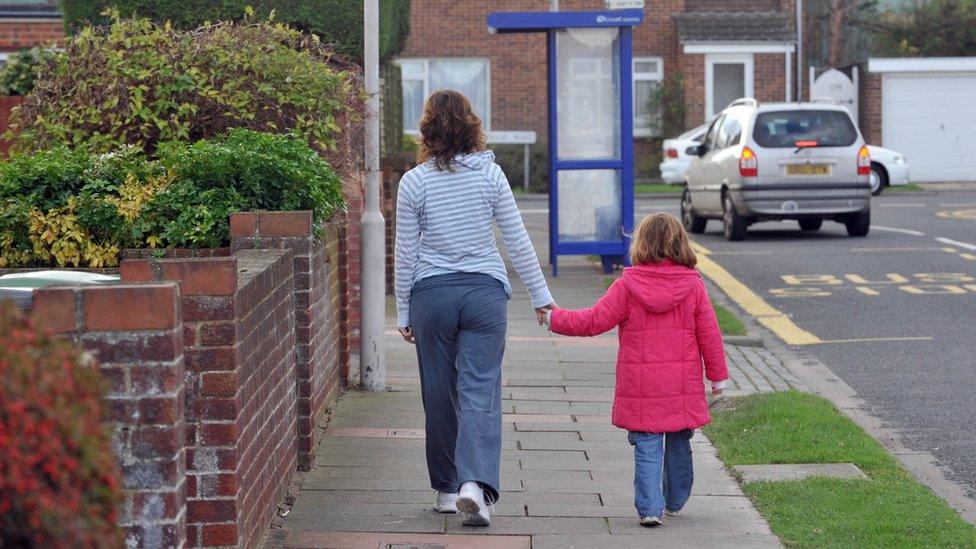
- Published26 October 2018
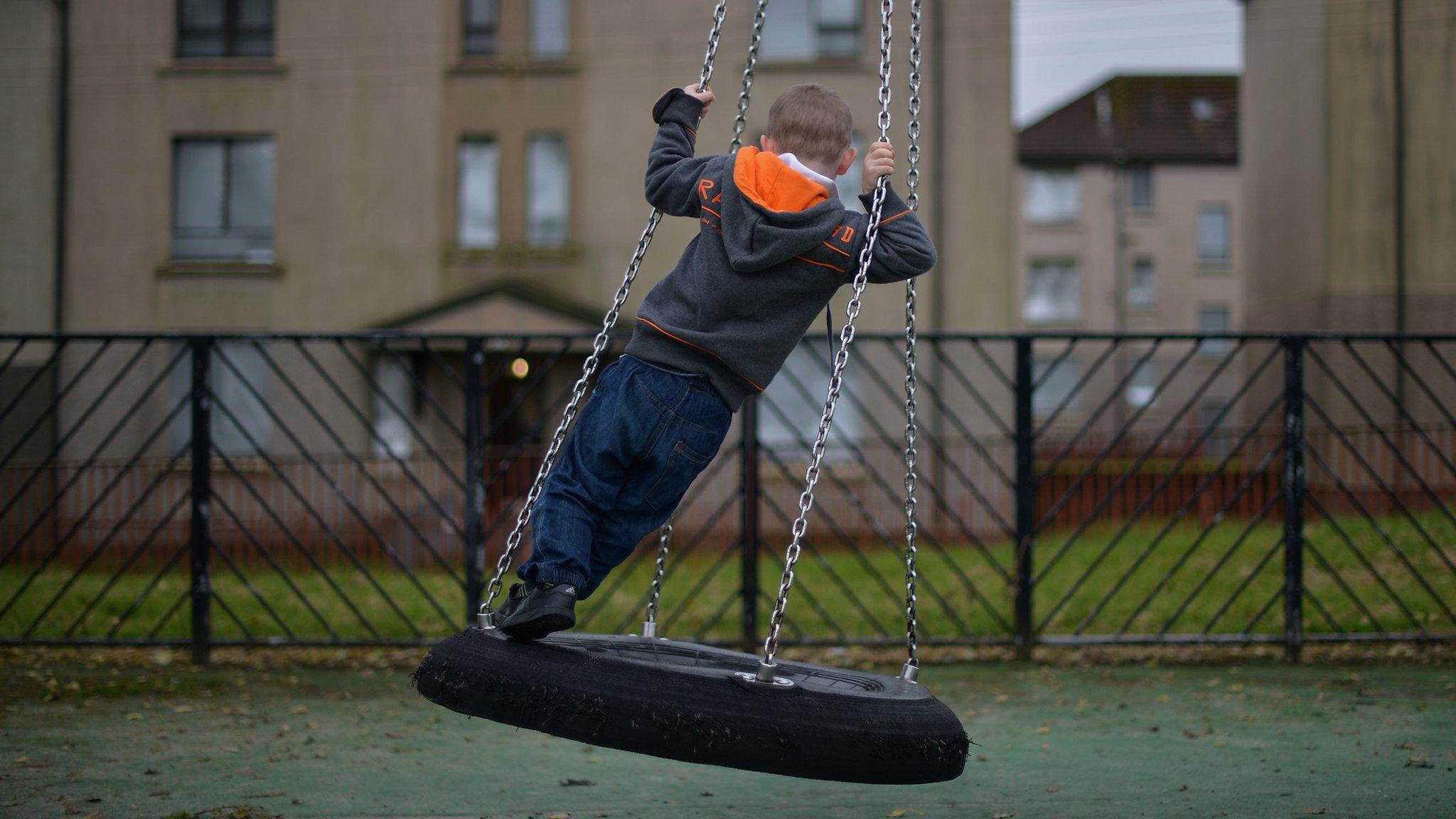
- Published13 May 2024
